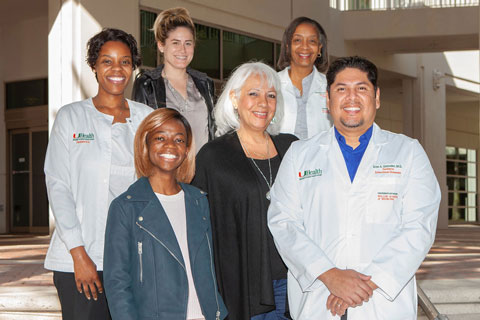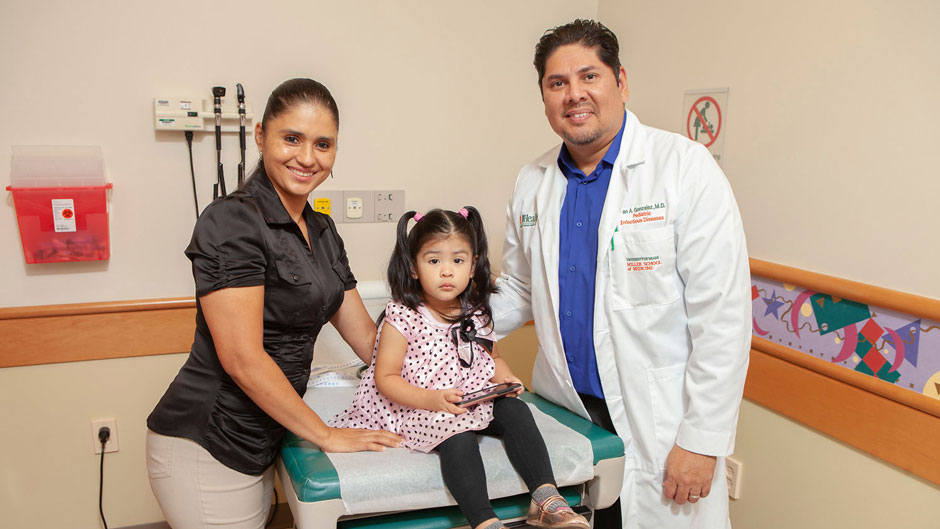Two years after a Zika virus outbreak in South Florida, the Caribbean and Latin America, a University of Miami Miller School of Medicine pediatric team is carefully monitoring more than 75 children who were exposed to the virus but do not have visible birth defects.
“Zika-exposed babies and infants need to be screened and monitored for potential developmental delays or other problems,” said Ivan Gonzalez, M.D., assistant professor of pediatrics and medical director of the Miller School’s comprehensive Zika Response Team. “As with many infant diseases and disorders, early intervention is crucial for positive long-term outcomes.”
While some babies with congenital Zika syndrome are born with serious abnormalities, such as microcephaly (small heads), about 80 percent of children and adults infected with the Zika virus have no symptoms at all. Researchers have determined that the Zika virus can be transmitted by mosquitoes in tropical environments and by unprotected sexual relations with a partner exposed to the virus.
“For the past two years, the Miller School has been in the forefront of the national clinical response to the Zika outbreak,” said Dr. Gonzalez. “While infants with congenital Zika syndrome received intensive care right from birth, we were concerned about monitoring babies without those dramatic symptoms.”
Supported by a $1 million grant from the U.S. Centers for Medicare & Medicaid Services, the multidisciplinary UM center was established in 2017 to provide care for Zika-exposed and infected infants, follow their development, and provide specialized care later if needed.

Comprehensive Zika Response Team: top row, from left, Wilmide Dominique, RN (clinical nurse), Katryna Cruz (case worker), and Michelle Hylton, RN (nurse manager); bottom row, from left, Marie Fatil, MPH (clinical research coordinator), Ana Garcia, Ph.D. (mental health clinician), and Ivan Gonzalez, M.D
It was the first such program in the continental U.S., and it served as a model for similar centers in Tampa and Houston. Other federally funded Zika clinical programs focus on young patients in Puerto Rico, the U.S. Virgin Islands, and American territories in the Pacific that have experienced Zika outbreaks.
Now, the pediatric team is tracking 75 children, from 1 week to 2 years old, through the UM Zika Resource and Referral Center. Most of these cases are due to the mother being exposed to Zika while traveling, rather than contracting the virus here in South Florida, said Dr. Gonzalez, adding that more than 75 percent of the infants are in families with incomes below the federal poverty line.
To date, Dr. Gonzalez has identified language delays in several Zika-exposed infants, but no problems with learning to walk or other motor skills.
“We have seen no correlation between developmental delays and whether the infants were exposed to the virus in the first, second or third trimester of pregnancy,” he added. “We need to learn as much as possible about the long-term impact of Zika virus infection, so we have a better understanding of what the future holds for these children.”
Along with educating parents and families, the UM Zika center also serves as a referral clinic and source of information for pediatricians, obstetrics-gynecology specialists and other community physicians. “Even if an exposed child looks and acts like a normal infant, our team can screen for development issues and provide specialized follow-up care for children and families.”
To learn more about how the University of Miami helped combat the Zika virus visit the Zika Special Report.

